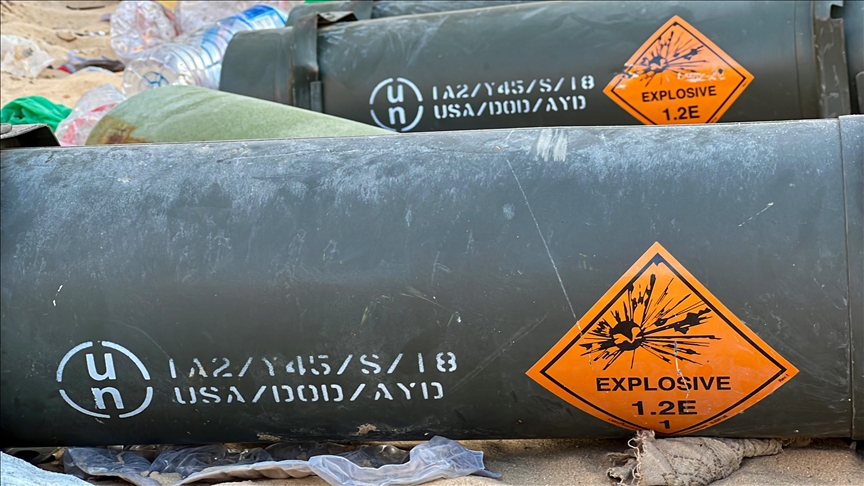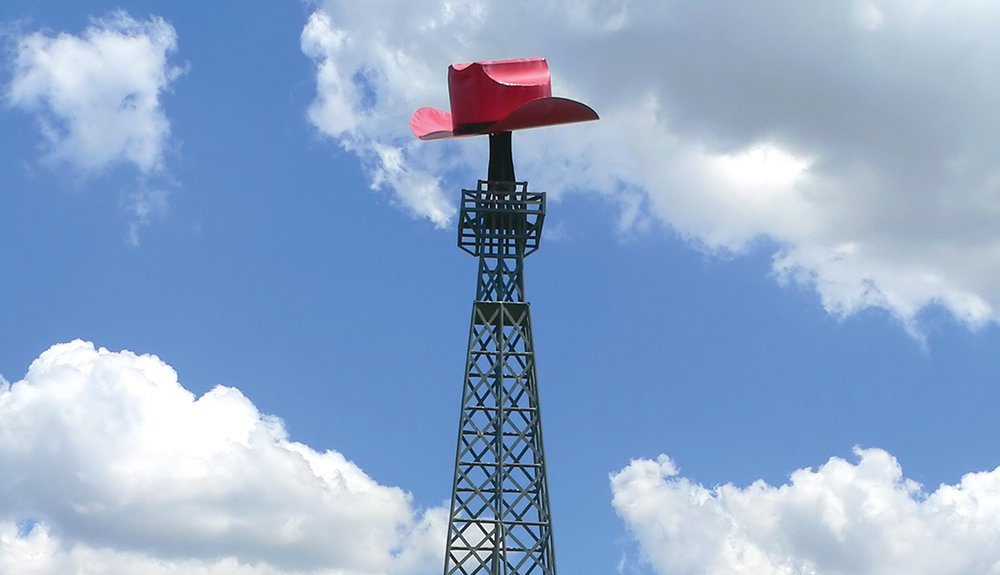USA and Germany lead the West in arming Israel in the Gaza war

ISTANBUL
Israel’s ongoing war against Gaza, now in its tenth month, has been marked by heavy civilian casualties and widespread destruction, and is largely fueled by Western weapons.
Germany is Israel’s second largest arms supplier after the USA and is contributing significantly to the worsening of the crisis.
Despite worldwide condemnation and calls for an end to arms sales, Germany, along with the US, Italy and the UK, remains the main supplier of military equipment that exacerbates the violence and suffering in the Gaza Strip.
These weapons have killed over 38,000 Palestinians in Gaza and devastated almost the entire besieged enclave. Israel has also imposed a crippling blockade on the supply of food, water, medicine and all essential humanitarian goods.
These Western states, particularly the United States, Germany, Italy and the United Kingdom, paid little attention to the demands of high-level humanitarian representatives and experts from all fields and pushed for the supply of military equipment to Israel despite the very real possibility of being guilty of complicity in genocide.
In April, the UN Human Rights Council passed an arms embargo against Israel. 28 countries voted in favor, six against and 13 abstained.
Opponents of the proposal included the United States and Germany, Israel’s two main arms suppliers.
What follows is a breakdown of the weapons and military support these countries provide to Israel.
US
As Israel’s largest arms supplier, the United States supplied 69 percent of Tel Aviv’s conventional arms imports between 2019 and 2023, according to a report by the Stockholm International Peace Research Institute (SIPRI).
Since October 7 last year, when the latest conflict in the Gaza Strip began, the United States has significantly increased its military support for Israel, approving and carrying out over 100 individual arms sales to foreign countries.
This extensive aid includes a wide range of weapons and ammunition, such as air defense systems, precision munitions, artillery shells, tank shells and small arms, reported the Washington-based Foundation for Defense of Democracies (FDD).
The Pentagon also leased two Iron Dome batteries back to Israel and transferred Tamir interceptor missiles from the US inventory.
In addition, Washington supplied large quantities of Joint Direct Attack Munitions (JDAMs) and Small Diameter Bombs (SDBs) and approved the sale of SPICE guidance systems to improve Israel’s precision strike capabilities.
Other deliveries included 155mm artillery shells, Hellfire rockets, 30mm ammunition and 120mm tank shells. Small arms and equipment such as PVS-14 night vision devices and bunker defeat munitions were also delivered.
Israeli media also reported that Washington plans to sell F-35 aircraft, Apache attack helicopters, Sikorsky UH-60 Black Hawk and SH-60 Seahawk helicopters, drones, M109 howitzers, M270 multiple rocket launchers, F-16 Fighting Falcons and thousands of artillery shells to Israel at the end of January.
At the end of March, the Biden administration also approved the sale of 25 F-35 fighter jets and aircraft engines worth $2.5 billion to Israel.
This package also included the delivery of 1,800 MK-84 unguided bombs and 500 MK-82 unguided bombs.
The US and Israel also signed an agreement on June 4 to sell 25 F-35 aircraft.
Germany
Germany is Israel’s second largest arms exporter in the area of conventional weapons, accounting for over 25% of imports between 2019 and 2023.
Berlin has supplied Israel primarily with submarines, warships, vehicle and aircraft engines, and torpedoes, often covering a third of the costs as military aid, according to Workers in Palestine.
Germany had already approved arms exports worth 326 million euros (352 million dollars) to Israel before October 7 and continues to issue licenses for military equipment such as training ammunition, the Berlin news portal Forensis reported.
These licenses also cover military technology, electronic equipment, warships, special naval equipment, bombs, torpedoes, rockets, missiles and other explosive devices.
In 2023, Germany made significant arms exports to Israel, including two Sa’ar-6 class corvettes, ten DM2A4 Seahecht torpedoes for Dolphin submarines and numerous diesel engines for various military vehicles, SIPRI reported.
The Sa’ar 6 corvettes, partly financed by the German government, became operational during the current Israeli offensive in the Gaza Strip. These warships have actively participated in attacks off the coast and contributed to the Israeli Navy’s blockade of the Gaza Strip.
The Eitan armored personnel carrier, powered by German diesel engines, was quickly made operational in the Gaza Strip. Both the Eitan and its counterpart, the infantry fighting vehicle, have been deployed on the front lines, supporting the Israeli forces in attacks on urban areas.
Germany also exported diesel engines for Merkava-4 tanks, which are essential for Israel’s ground offensive. Since last October, these tanks have been used in attacks on civilians and infrastructure in Gaza.
In January this year, the German news magazine Der Spiegel reported that Berlin had agreed to supply Israel with 10,000 rounds of 120mm tank ammunition from its military stockpiles, following an Israeli request made last November.
Italy
Italy is the second largest arms exporter after Tel Aviv, accounting for 0.9% of Israeli imports from 2019 to 2023, according to the SIPRI report.
In the last quarter of 2023, Italy exported weapons and ammunition worth 2.1 million euros to Israel, according to Italian media.
“In December alone, during the bombing of the Gaza Strip by the Israeli army and air force with its catastrophic consequences for the civilian population, Italian exports reached 1.3 million euros, marking the peak of the period (compared to 233,025 euros in October and 584,511 euros in November),” reported the Italian news magazine Altreconomia.
According to Italy’s national statistics institute (ISTAT), a significant proportion of these exports concern categories such as rifles, spring-loaded guns and similar weapons powered by compressed air or gas.
The impressive value of 430,000 euros is made up of parts and accessories for a wide range of firearms, including machine guns, revolvers, pistols and other devices.
United Kingdom
In April, Britain’s Foreign Secretary David Cameron announced that it would not halt its arms sales to Israel following a thorough review of recent legislation in light of the ongoing humanitarian crisis in the Gaza Strip.
British companies such as BAE Systems continue to supply Israel with weapons, including components for the F-15, F-16 and F-35 fighter jets, reported the London-based organization Action on Armed Violence.
According to Human Rights Watch, Britain supplies about 15 percent of the components for the F-35 stealth bombers currently in use in the Gaza Strip.
In addition, the UK has 28 active and 28 pending licenses for military equipment that could be used by Israel in the Gaza Strip.
However, Defence Secretary Grant Shapps claimed that British arms exports to Israel were “relatively small” and would total £42 million ($53.5 million) in 2022.
According to the Campaign Against Arms Trade (CAAT), Britain has approved arms exports worth £560 million to Israel since 2008.
“This does not capture the full extent of UK arms exports to Israel, as many arms export licences to Israel are ‘open’ and there is no cap on the number of exports licensed or their value; and many licences are intended for the US, for incorporation into larger weapons systems for onward export to Israel,” a CAAT report said.
“The most traceable exports from the UK to Israel are components for the F-35 and F-16 fighter jets – both used by the Israeli army in the Gaza Strip,” it said.
In another report, the CAAT stated that the British arms industry supplies 15 percent of the components of the F-35 stealth fighter jet, which is “currently being used in the bombing of Gaza.”
CAAT estimates that the value of components supplied by the UK since 2016 is at least £336 million.
The Anadolu Agency website contains only a portion of the news offered to AA News Broadcasting System (HAS) subscribers, in a summarized form. Please contact us regarding subscription options.



